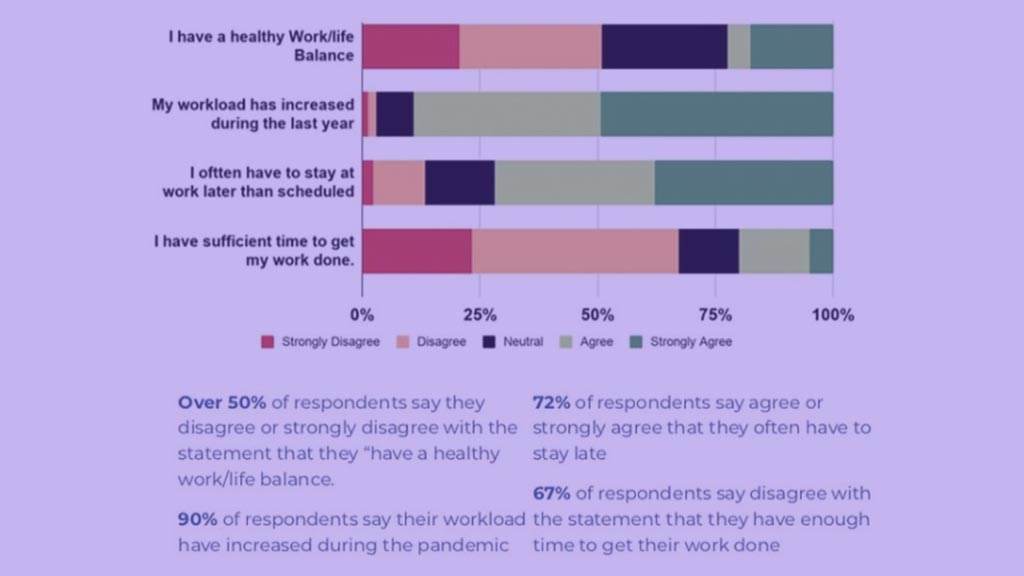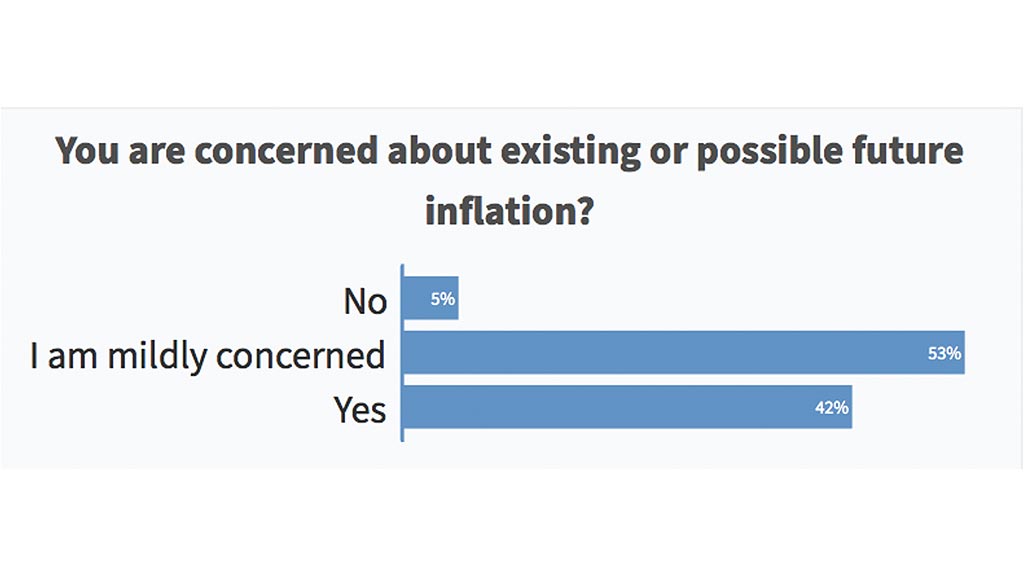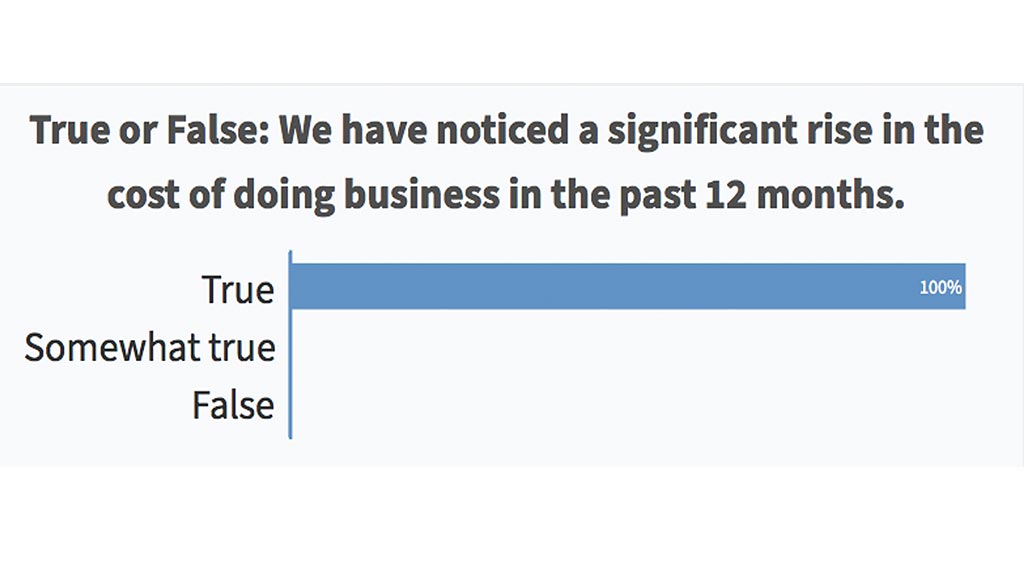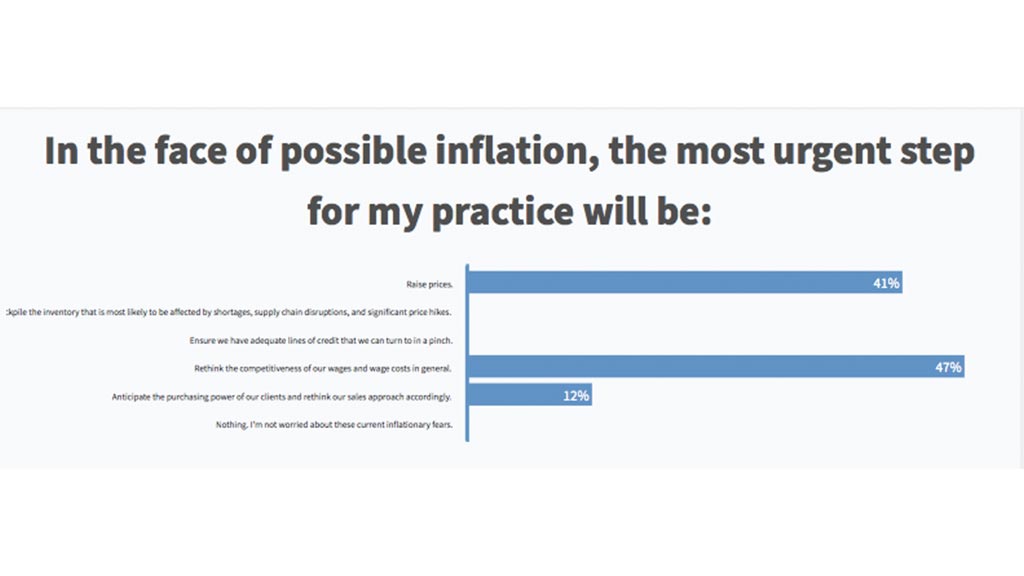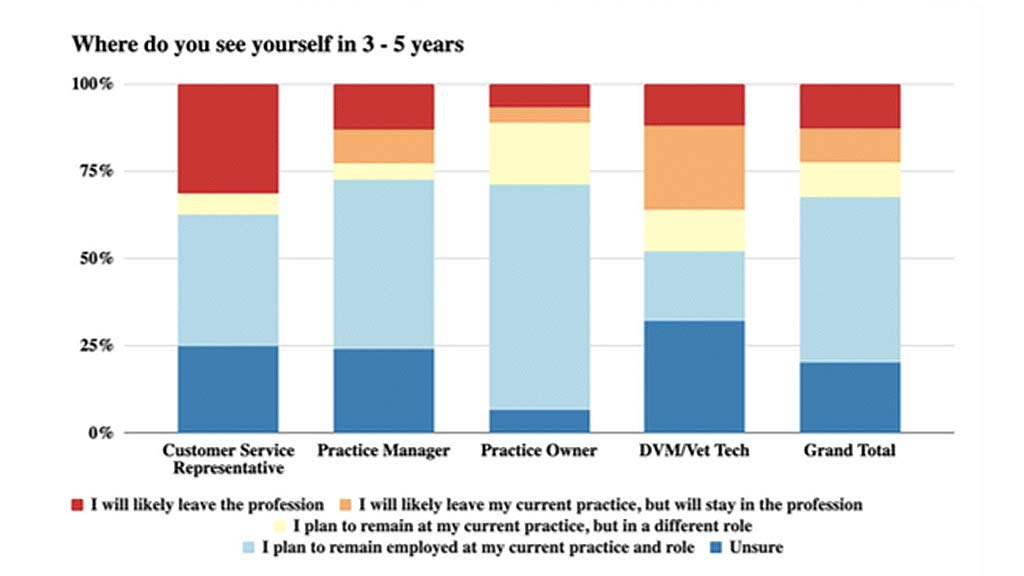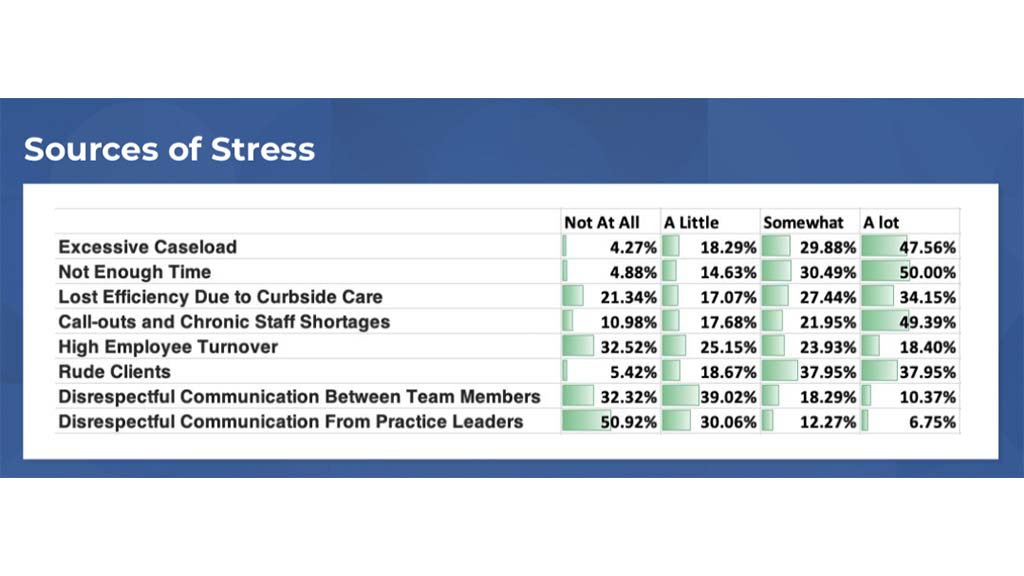During the 2021-year, interactive conference platforms allowed hundreds of veterinary professionals to be polled in real time. Here’s what they said about staffing, inflation, workplace stress, and the future ahead.
Concerns About Inflation
The Federal Reserve may be uncertain about the future of inflation in the U.S. Not true of veterinary professionals. Ninety-five percent of veterinary leaders polled said they were ‘concerned about existing or possible inflation’.
- 100% of respondents agreed that their inflation concerns were bolstered by significant rising business costs.
- When asked if they were currently working on a response to inflationary pressures, nearly 50% of veterinary leaders said they were rethinking the competitiveness of their wages and wage costs in general.
- 41% said they were thinking about raising prices
- 12% of leaders said they were planning to better anticipate the purchasing power of their clients.
When asked if their inflation concerns were bolstered by significant rising costs, 100% of respondents agreed.
When asked if they had an ‘urgent’ response to inflationary pressures, nearly 50% of veterinary leaders said they were rethinking the competitiveness of their wages and wage costs in general (47%), 41% said they were thinking about raising prices, and 12% of leaders said they were planning to better anticipate the purchasing power of their clients.
Takeaway: Of the 400 or so audience members polled, all agreed that business costs were appreciably rising and that leadership teams were discussing higher wages, raising prices, and readjusting their sales approach to clients as possible solutions.
Human Resources: 35% of Vets and Vet Techs Will Quit In 3-5 Years
In a study conducted in collaboration with VitusVet in 2021, nearly 25% of respondents said they would either leave the profession or their current place of employment due to an uptick in stressors, but that number expands to almost 35% if you focus exclusively on techs and veterinarians. That information was especially surprising to Evan Hannscott, Director of Data Science at VitusVet.
“The most eye opening result is that DVMs & tech’s appear to be flight risks. The two cohorts [veterinarians and technicians] were analyzed both combined and separate given they are similar in that both jobs require specialized training. Within the combined DVM/tech cohort, about 35% will either leave the profession entirely or leave their job at their current practices. Only 30% of this cohort plan on remaining at their current practice with the remaining 35% ‘unsure’.” Evan Hannscott, Director of Data Science, VitusVet
Sources of Stress Identified
Respondents were asked to choose from a list of potential sources of workplace stress that covered time constraints, communication (internal and with clients), and caseload. Because those surveyed could choose multiple answers, results added up to more than 100%. The top four sources of stress that the respondents identified were: Not enough time (50%), callouts and staff shortages (49%), excessive caseload (48%), and rude clients (38%). This information syncs up nicely with existing data across the U.S. labor market that shows that most workers, not just us veterinary professionals, believe they are spread too thin and working at too high of a risk to their health (women and young people are more likely to express the latter sentiment). Another often cited source of workplace stress/unhappiness is lack of recognition from employers. This is not recognition in the form of raises or other monetary perks, but genuine verbal or visual cues from supervisors or coworkers that the employee is valued.
Takeaway: More than 400 veterinary leaders polled are in nearly full agreement that business is at record highs, that the workload/pandemic is causing an increased sense of burnout, and that they are eager to find workable solutions to pull pressure off their appointment schedules and their teams.
Anecdotal Information Gleaned from Leadership Teams
Though practice leaders are nearly in unison on such issues as the economy, competitiveness, and critical team health issues like angry clients, burnout, training and coaching, few seek out any kind of formal leadership training to address the issues, nor are many prioritizing solutions to the issues beyond day-to-day coping mechanisms. For example:
- Few have evaluated their employee review system for efficacy
- Few managers admit to having had any formal training to improve the way they coach employees.
- Few leaders have challenged their practice’s way of training, have ways of evaluating their practices’ training program’s efficacy, or sought out methods to be better trainers.
- Few have tried especially innovative ways of increasing efficiency despite more than 18 months of chronic staff shortages, increased caseload, and ongoing labor shortages.
- Many have yet to implement technology proven to increase efficiency like phone call management systems, two way texting, telemedicine and apps that allow clients to book their own appointments, confirm appointments and check in, manage their pet’s medical information, receive push notifications, and pay their hospital bill.
Participate in the Discussion at Upcoming Fetch Conferences
Real-time polling is a great way to stimulate thinking. Attendees can use their cell phones to anonymously submit responses to questions and then watch the answers of the entire audience populate live on the conference room screen. The responses are a great jumping off point for discussion amongst everyone in attendance and do a great job at inspiring lots of ideas that can be taken back home and put to work.
I’ll be at the upcoming DVM360 Atlantic Coast Veterinary Conference and the DVM360 San Diego Conference conference talking about new technology, new and improved ways of coaching, and communication in the age of stress. But this won’t be a one-way street of learning. Live conference interactions lead to thoughtful questions, the formulation of great ideas, and inspired management decisions after attendees return home to work.
Use Discount Code Faculty10
There’s still time to register. Use Faculty10 for 10% off the cost of registration for ACVC and San Diego 2021.

